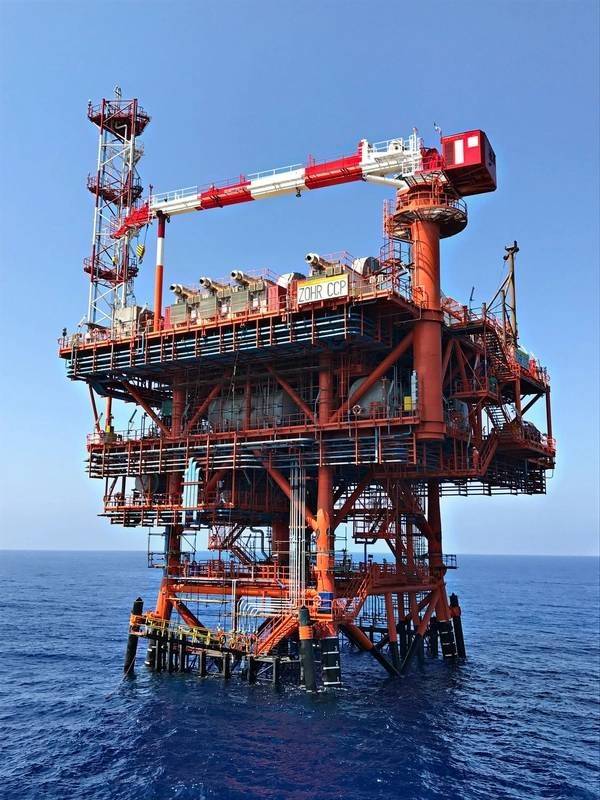
Egypt's natural gas production fell to a three-year low in the first five months of 2023, figures from the Joint Organisations Data Initiative (JODI) show, raising questions about the country's efforts to position itself as a regional energy hub.
Currently the country is grappling with power shortages when a heatwave has driven up demand for cooling.
Gas production between January and May declined by 9% year-on-year and 12% when compared to the same period in 2021.
Egypt, which faces growing demand for gas from its population of 105 million, has been seeking a regional supply role, selling its own gas and re-exporting Israeli gas as liquefied natural gas (LNG) to the Middle East, Africa and Europe.
It received a boost from Italian company Eni's discovery of the giant Zohr gas field in 2015, and started importing from Israel in 2020.
But there have been few large discoveries since, and a significant increase in supplies from Israel would only be possible after major infrastructure investment.
Production at Zohr stands at 2.3 billion cubic feet per day (bcfd), the government said last month, down from 2.7 bcfd in 2019.
Analysts and an industry source said water infiltration issues at Zohr, which had an estimated 30 tcf of gas reserves and a design capacity of 3.2 bcfd, have held back production.
"The decline in production from the field is having a notable impact on gas output as the field accounts for approximately 40% of the country's total gas production," said Olumide Ajayi, senior LNG analyst at LSEG.
Both Eni and the Egyptian government last week denied production problems at Zohr. The government says work is under way on Zohr's 20th well.
The government in July announced the start of a $1.8 billion program to drill natural gas exploration wells in the Mediterranean Sea and Nile Delta, and the discovery of an offshore field, Nargis, estimated to hold around 2.5 tcf of reserves.
However, in July ratings agency Fitch revised down its forecast for Egypt's gas production in 2023, to a 4% decline from its previous prediction of 1% y-o-y growth. It cited a thin project pipeline and high depletion rates at existing fields.
These include declining output from the Western Desert, West Delta Deep Marine and onshore fields in the Nile Delta, said Siamak Adibi of consultancy FGE.
Rolling blackouts this summer have also raised questions about gas supply, which accounted for 77% of Egypt's power generation in 2022, according to BMI Research.
In 2022, the government announced a decision to ration electricity so it could export more gas. However, it said last month it would halt exports until the autumn to meet domestic demand.
"This gas rationing for export coupled with the increase in electricity demand and the shortage of gas has contributed to the power shortages in Egypt," said Lerato Monaisa, BMI Research's senior power and renewables analyst.
Electricity Minister Mohamed Shaker told local media in July that the power cuts resulted from his ministry receiving lower quantities of natural gas and fuel oil.
Prime Minister Mostafa Madbouly later denied that natural gas shortages or exports were a factor in the power cuts, and said extra mazut, a carbon intensive fuel oil the government has resorted to for power generation, would be imported.
Egypt's petroleum and electricity ministries did not respond to a request for comment.
Natural gas production https://tmsnrt.rs/3DQlpF2
(Reuters - Reporting by Sarah El Safty; additional reporting by Aidan Lewis; editing by Barbara Lewis)